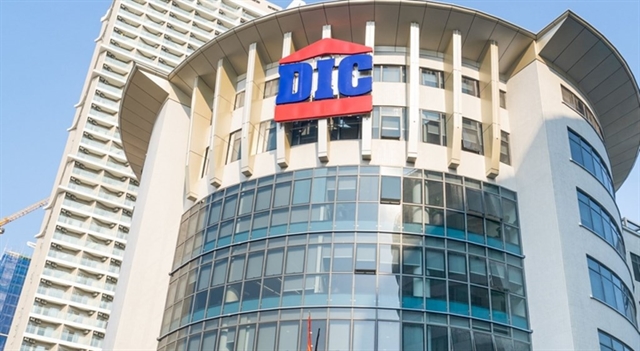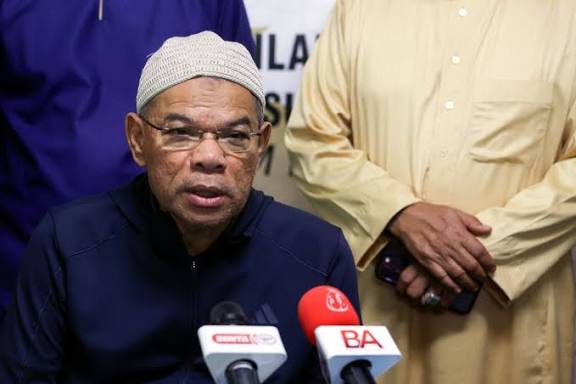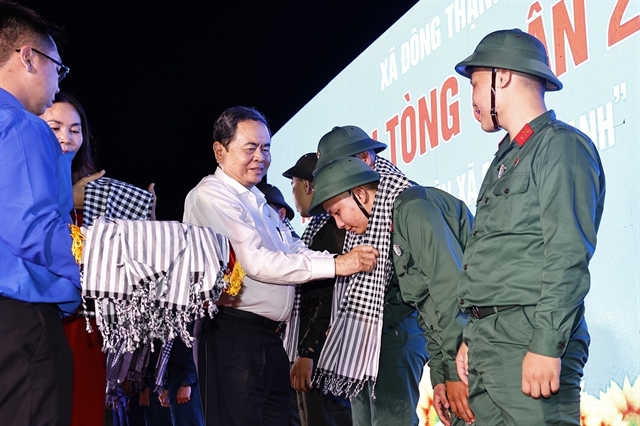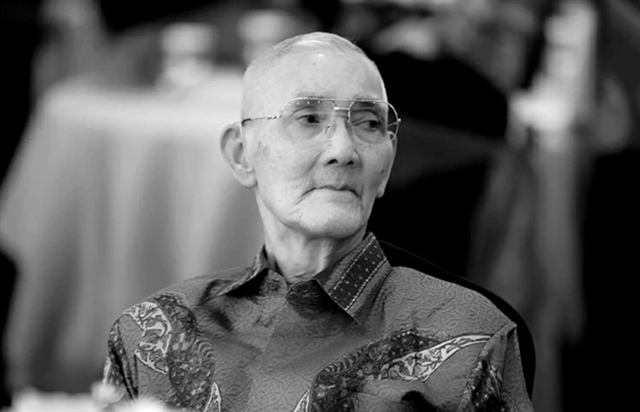 Politics & Law
Politics & Law
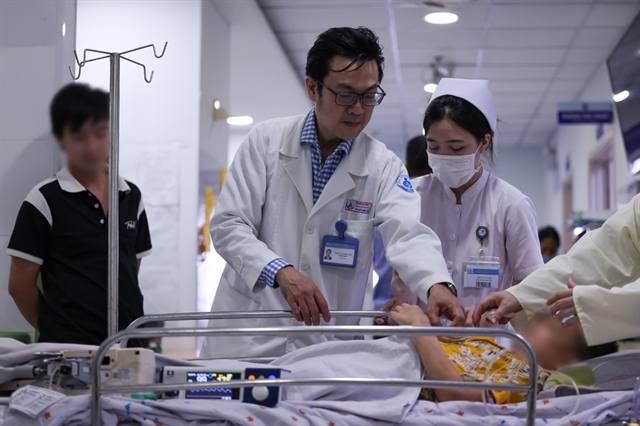
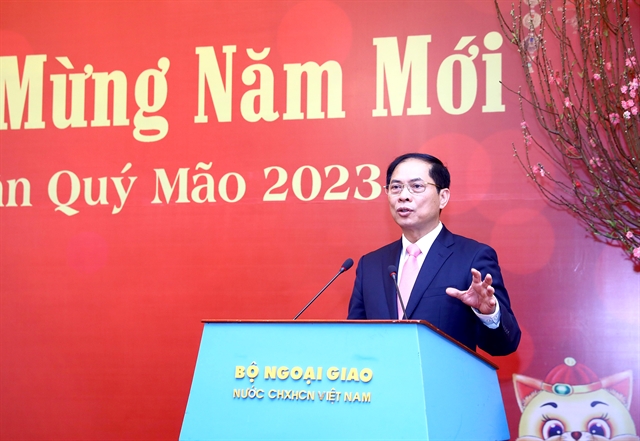 |
| Minister of Foreign Affairs Bùi Thanh Sơn. — VNA/VNS Photo Lâm Khánh |
HÀ NỘI — Minister of Foreign Affairs Bùi Thanh Sơn has highlighted six priorities the diplomatic sector will focus on in 2023 during a recent interview with the press.
He pointed out that complex and unpredictable developments in the world economy in 2023 will pose more latent difficulties and challenges than last year. However, Việt Nam will push ahead with realising the development targets set at the 13th National Party Congress and the socio-economic development plans for 2021-25.
He said that the diplomatic sector would apply itself to implementing six priorities.
First, the sector will continue consolidating a stable, peaceful, and favourable external environment for development by enhancing relations with neighbouring countries, powers, strategic and comprehensive partners, traditional friends, and other important partners to promote political trust and common interests.
The sector will step up multilateral diplomacy and integration and raise Việt Nam’s role in the building and shaping of multilateral institutions. Furthermore, actively engaging in the Association of Southeast Asian Nations (ASEAN), the Mekong sub-region, and the United Nations is key to the use of development initiatives effectively while boosting diplomacy to serve digital transformation, green transition, and climate change response is vital.
Minister Sơn pointed out that the diplomatic sector will help with macro-economic stability maintenance and socio-economic development amid recession risks facing the global economy; foster economic diplomacy to serve development; proactively grasp and propose measures for stabilising the macro-economy; improve the effectiveness of international economic integration; expand export markets and gradually diversify export products, markets, and partners.
This will help Việt Nam in the shift of global supply chains and green transition in optimising new development trends; capitalising on other countries’ assistance in sustainable agricultural restructuring, supply chain shifting, digital transformation, and energy transition; and effectively implementing free trade agreements, especially the Comprehensive and Progressive Agreement for Trans-Pacific Partnership (CPTPP), the EU – Việt Nam Free Trade Agreement (EVFTA), and the Regional Comprehensive Economic Partnership (RCEP).
The sector will also strengthen diplomatic coordination with defence and security by grasping the South China Sea (known in Việt Nam as the East Sea) and land border situation, promoting cooperation to prevent any violation of Việt Nam’s sovereignty, territory, sovereign rights, and legitimate interests.
Furthermore, negotiations will be stepped up on an efficient and effective code of conduct (COC) in the South China Sea that matches international law, including the 1982 UN Convention on the Law of the Sea (UNCLOS). The minister noted that proactively refuting propaganda and distortions with sabotage and incitement purposes by hostile and reactionary forces is essential.
Modern and comprehensive diplomacy will be promoted, with the coordination among the Party, State, National Assembly, and people’s diplomacy enhanced. The sector will work to ensure the Party’s consistent leadership, the State’s concentrated management, and the close and concerted coordination among all pillars and forces engaging in external affairs.
The sector will also bring into play the role of diplomacy in protecting the Fatherland early and from afar. This will involve studying, forecasting, and proposing diplomatic strategies, especially for issues with direct and long-term impacts on national security and development, and pressing on implementing the major plans and strategies on diplomacy, security, and defence.
Last but not least is to build a contingent of diplomats having good thought, morality, mettle, and wisdom with a modern and professional working style and creativity. Special attention will be paid to Party building and rectification and personnel affairs; the development of regional and international-level experts; the consolidation of scientific and efficient apparatus for the sector; and the acceleration of modernisation and digital transformation, according to the minister. — VNS

